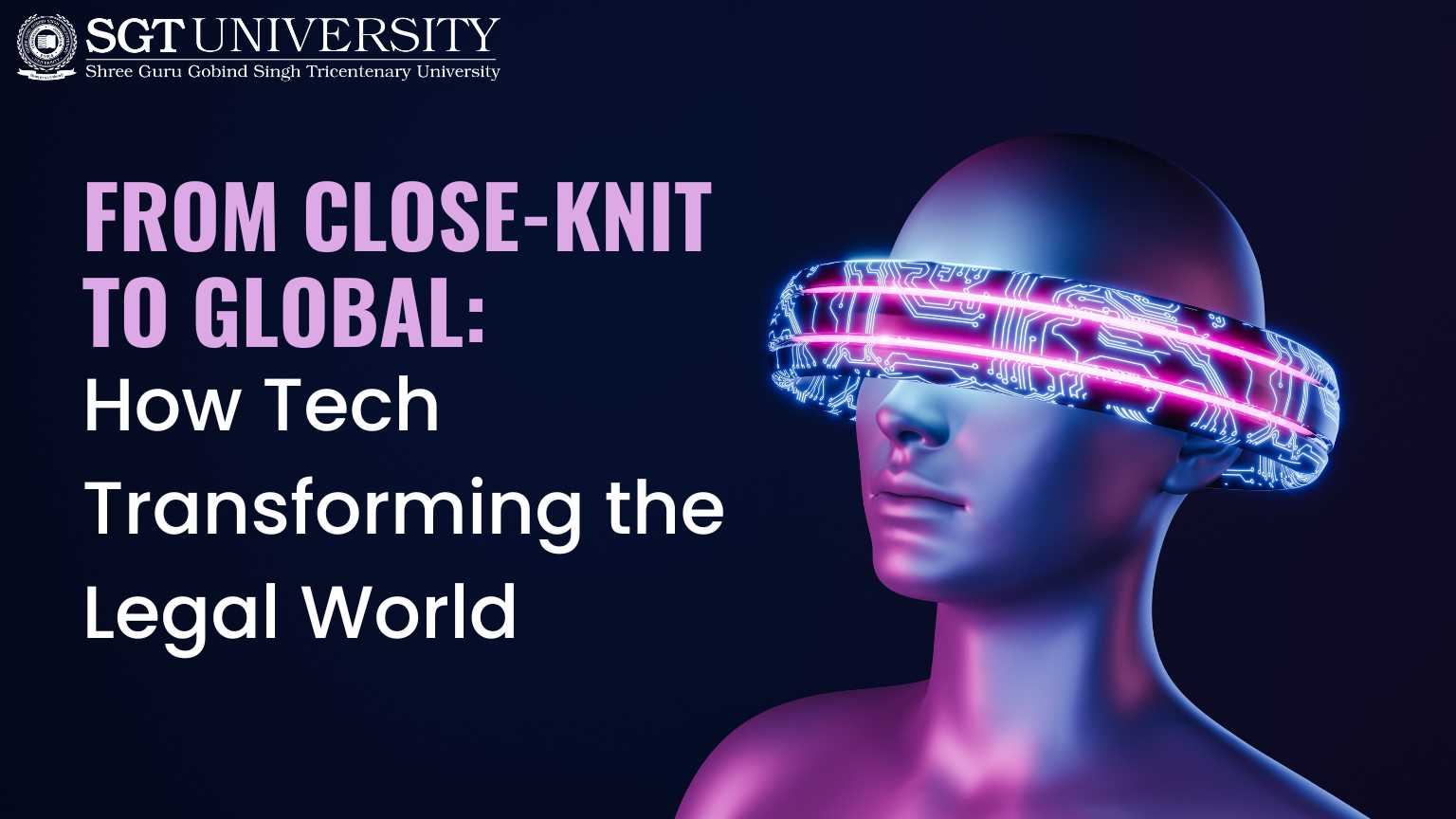The legal profession has changed tremendously, transforming from a close-knit community to a global corporate market. Technology has played a pivotal role in driving this shift in the legal field.
A seismic transition from the predigital to the digital era has reshaped the legal landscape, dramatically altering the legal profession due to globalization and increased engagement among countries. Technology has made legal education more accessible and learning materials easier to comprehend. The advancement of technology has influenced both legal practices and education, enhancing the success of legal education by facilitating the analysis of legal issues, conducting legal research, and gathering and organizing information.
Technology has significantly increased the efficiency and productivity of law offices and clerical staff. The advancement of legal technology has fostered greater openness between law practices and their clients. Additionally, present-day law educators are challenged to instruct students who have grown up with technology. Incorporating technology into the classroom has become unavoidable when working with millennial students.
The legal field heavily relies on various technologies, such as in-house documentation software, cloud-based technology, Artificial Intelligence, Internet of Things (IoT), word processors, e-discovery solutions, time tracking, billing technology solutions, blockchain-based intelligent contracts, payment solutions, augmented reality, and virtual reality, among others.
Legal tech involves using technology to assist attorneys and law firms in digitizing procedures related to delivering legal services. By expediting lawyer-client communication, automating e-discovery, simplifying case management, utilizing analytics, building online communities, and enhancing transparency, technology has improved the accessibility and quality of legal services. Artificial intelligence (AI) can transform the judicial system, aiding in various aspects of the court, from case preparation to decision-making.
Artificial intelligence supports attorneys and judges in analyzing vast amounts of data, including past cases, judicial rulings, outcome predictions, and making informed decisions. It also aids lawyers in managing their caseloads, scheduling appointments, and reviewing legal documents. AI-driven language translation techniques can be employed in court proceedings to overcome language barriers, allowing for real-time translation of proceedings. However, while there are numerous benefits to leveraging artificial intelligence, its application should be approached cautiously; human judgment remains crucial, as AI can lead to biased and unfair outcomes. Therefore, responsible and ethical implementation of artificial intelligence is essential, aligning with principles of fairness and justice.
Supreme Court Justice D.Y. Chandrachud advocated a healthy balance between utilizing technology and fostering human interaction to enhance the justice delivery system. He emphasized that while technology propels progress, human intellect remains, and will remain, the catalyst for change. He also underscored the importance of retaining the human aspect of justice, which remains fundamental amid technological advancements. Another Supreme Court justice remarked that technology should drive change, not just automation. However, given its permanence in the field, he advised judges, bar members, and stakeholders to adapt to technology’s demands.
Real-time communication with multiple attorneys enables a prompt understanding of crucial legal needs, facilitating collaboration with the right specialists and offering additional benefits, including transparency. Integrating technology in the legal domain enhances productivity and attracts new clients, leading to various legal services that enhance transparency and reduce paperwork errors.
For legal professionals, leveraging the power of technology is essential to enhance the efficiency of their profession. SGT University offers legal degrees incorporating technology, providing attorneys a pathway to success.
To learn more about the courses offered under SGT University’s Faculty of Law:
- BA LLB (Hons.): This is a five-year integrated LLB course that combines Humanities and Law streams, allowing candidates to study subjects such as History, Sociology, Political Science, and Law.
- BBA LLB (Hons.): This five-year integrated law course teaches subjects related to Business Administration, Principles of Management, and Law.
- LLB (Hons.): This three-year course focuses entirely on law subjects, developing theoretical knowledge alongside practical aspects of Law, intending to shape students into exemplary legal professionals.
- Master of Law: The LL.M. program is an executive course that offers opportunities to specialize in new and emerging areas of Law, providing in-depth knowledge in a particular area of Law through specialist program pathways.
- Ph.D. in Law: The Ph.D. in Law program aims to enhance the research skills of emerging scholars. It focuses on deepening knowledge of Law, exposing scholars to contemporary trends, and equipping them with comparative legal practice. The program is supervisor-led and includes coursework.
In conclusion, technology has emerged as the driving force behind transforming the legal profession from a close-knit community to a global corporate market. This seismic shift, propelled by advancements like Artificial Intelligence and real-time communication, has not only increased the accessibility of legal education but has also heightened the efficiency and transparency of legal services. As we navigate the intersection of technology and justice, striking a balance that preserves human intellect while harnessing the potential of AI is crucial. Through responsible implementation, the legal field stands ready to continue evolving in collaboration with technology, paving the way for a more efficient and just future. At SGT University’s Faculty of Law, forward-looking programs empower legal professionals to navigate this changing landscape and actively drive progress in an era where technology and Law are intertwined.



